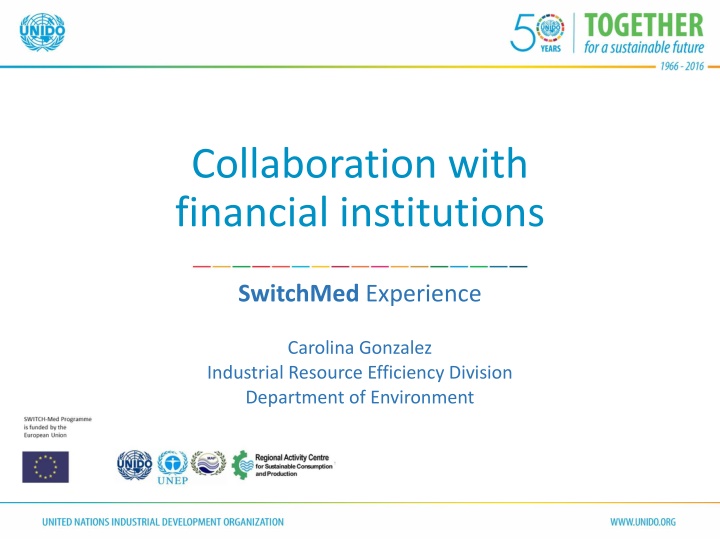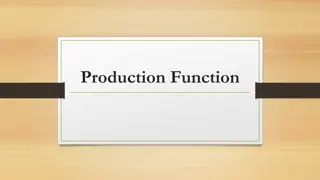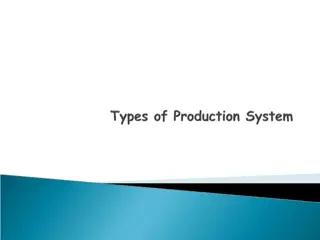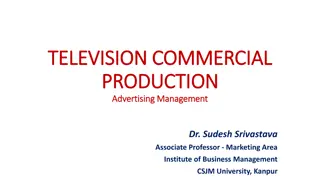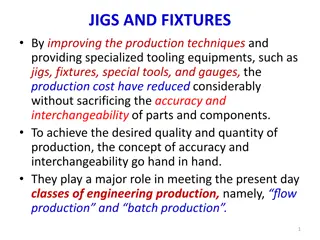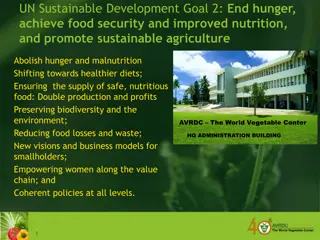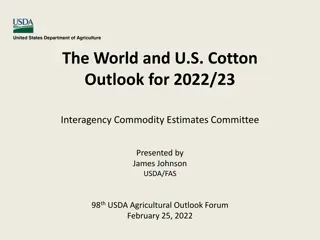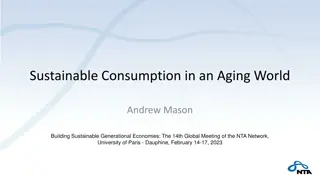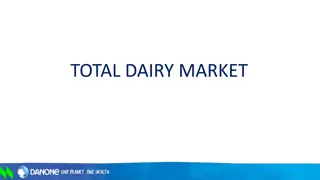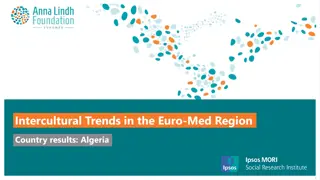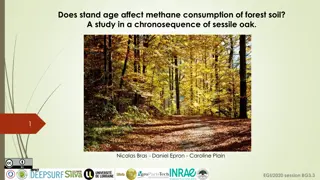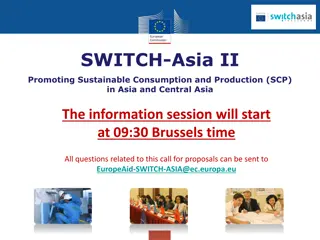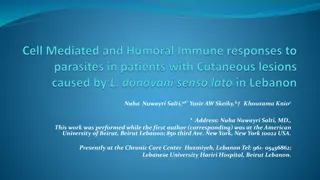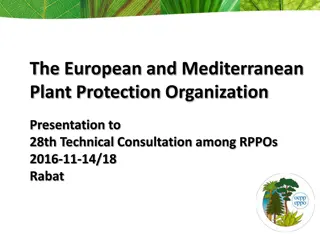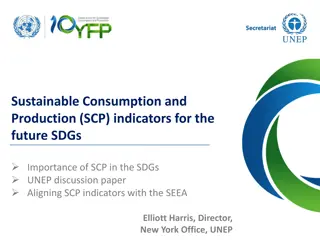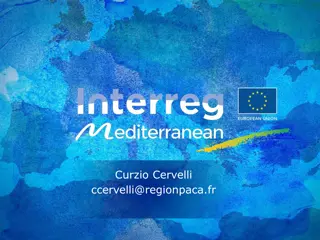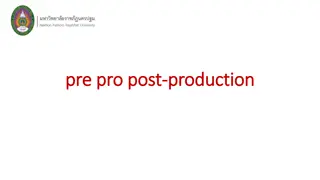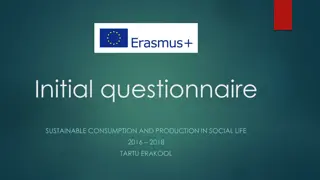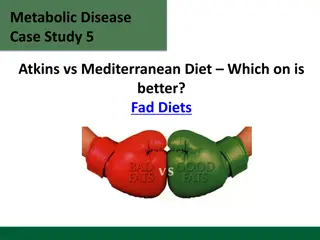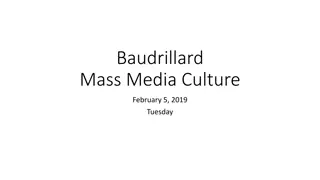Promoting Sustainable Consumption and Production in the Mediterranean Region
Collaborating with financial institutions, the SwitchMed Experience led by Carolina Gonzalez aims to facilitate a shift towards Sustainable Consumption and Production in the Southern Mediterranean Region. With a focus on policy, demonstration, and networking, the project targets eight countries to enhance environmental governance, support green entrepreneurship, and promote sustainable production practices. Through initiatives like MED TEST II and technology transfer for environmentally sound practices, the project works towards resource efficiency, cleaner production, and sustainable enterprise strategies.
Download Presentation

Please find below an Image/Link to download the presentation.
The content on the website is provided AS IS for your information and personal use only. It may not be sold, licensed, or shared on other websites without obtaining consent from the author.If you encounter any issues during the download, it is possible that the publisher has removed the file from their server.
You are allowed to download the files provided on this website for personal or commercial use, subject to the condition that they are used lawfully. All files are the property of their respective owners.
The content on the website is provided AS IS for your information and personal use only. It may not be sold, licensed, or shared on other websites without obtaining consent from the author.
E N D
Presentation Transcript
Collaboration with financial institutions SwitchMed Experience Carolina Gonzalez Industrial Resource Efficiency Division Department of Environment
Facilitate the shift toward Sustainable Consumption and Production (SCP) in the Southern Mediterranean Region. Donor: European Commission, 22 M EUR Partners: UNIDO, UNEP-DTIE, UNEP-MAP & SCP/RAC Countries (8): Algeria, Egypt, Israel, Jordan, Lebanon, Morocco, Palestine and Tunisia 1. POLICY: Strengthen relevant environmental governance and policy frameworks Duration: 2014-2018 2. DEMONSTRATION: Sustainable Production MED TEST II Green Entrepreneurship & Civil Society Empowerment SCP National Action Plans demo 3. NETWORKING Support the visibility, effectiveness, long-term sustainability and impact of the project www.switchmed.eu 2
MED TEST II TEST integrated tools Stimulate the demand and supply of sustainable production services in key manufacturing sectors: Resource Efficiency & Cleaner Production (RECP) Environmental Management Systems (EMS) Energy Management System (EnMS) Build capacity of local service providers on TEST approach Material Flow Cost Accounting (MFCA) Corporate Social Responsibility (CSR) Complete industry demonstration projects, consisting in the identification and implementation of sustainable production practices and technologies in key sectors. Expose local stakeholders including policy makers to the project s activities, proving inputs for harmonizing and reinforcing policies, and incentive schemes to support the introduction of resource efficient, clean technologies in industry. 3
Transfer of Environmentally Sound Technologies TEST Potential for improvement Initial Review Viability and commitment MFCA total costs of material losses Phase 1 RECP, EMS, MFCA RECP BAT/BEPs EMS & EnMS system support Investment needing measures Phase 2 EST Feasibility study, Financing Evaluation and reflection Phase 3 SES/CSR Sustainable Enterprise Strategy
MED TEST I Case Study CUMAREX Cumarex is a Moroccan company, established in 1992, operating in the fish canning sector. Employ 320 people and generate a turn over of approx. 25M USD. The main products are canned tuna, mackerel, and melva, which are 90% destined to export. The company joined the MED TEST project in order to identify opportunities to implement an efficient use of resources (water and energy), improve production processes, valorise fish solid waste and minimize liquid effluents in light of reducing the investment and operational costs of the future wastewater treatment plant.
Cooperation with the European Bank for Reconstruction & Development (EBRD) Sustainable Energy Financing Facilities SEFF finance to the commercial sector typically ranges from a few hundred thousand to a few million euros, most often to support sustainable energy projects through the purchase and installation of equipment, systems or processes. Credit facility dedicated to financing energy efficiency and small-scale renewable energy investments of private companies in Morocco www.morseff.com 6
Financing of up to 3 000 000 DH (275 000 EUR) for small-scale projects available through a pre-approved List of Eligible Materials and Equipment and of up to 50 000 000 DH (4.5 M EUR) for larger, more complex investment projects. Investment incentives of 10% or 15% of financing amount funded by grants from the EU Neighbourhood Investment Facility. Free-of-charge technical assistance for project assessment and implementation and verification of projects post-implementation; funded by grants from the EU NIF and the SEMED Multi- Donor Account. Local distribution through Moroccan Participating Banks. www.morseff.com 7
Cooperation with MorSEFF o Feasibility studies are developed for clean technologies and upgrades to industries o Investment needs identified through MED TEST are submitted to MorSEFF for financing o Understanding of MorSEFF criteria and requirements facilitates the preparation of bankable projects from the start o UNIDO provides technical assistance to industries to target MorSEFF financing o EBRD supports with ongoing follow-up to MED TEST II industries in developing EE investment plans. 9 October, 2024 8
Cooperation with MorSEFF Initial Results: First company has submitted loan request to MorSEFF local bank and been approved for 0.5 M EUR loan for investments in EE Other companies expected to follow once EE assessments are completed For the Future: Currently MorSEFF only supports investments in Energy Efficiency Next round of SEFF programs will expand to include Resource Efficiency UNIDO will collaborate with MorSEFF to develop criteria for assessing RE criteria in green loans 9
Other Financing Opportunities in the region Palestine: Bank of Palestine offers green loan programme focuses on energy efficiency, renewables and recycling. Expand the scope to include resource efficiency investment. UNIDO can quality assure the individual projects, including expected savings to repay the green loans. Lebanon: Banc du Liban offers green subsidized loans through two mechanisms: National Energy Efficiency and Renewable Energy Action (energy loans) and Lebanese Environmental Action (environmental loans). Lebanon Pollution Abatement Project (LEPAP) focus on env. compliance (TA funding from Gov. of Italy and investment component from WB) Jordan Environment Fund: Operated by the Ministry of Environment; focus on relatively small projects in waste and/or water management Jordan Enterprise Development Corporation has a financing program of 150 M EUR from the Jordan Government Development Fund Jordan Renewable and Energy Efficiency Fund: Credit Line Facility in collaboration with the Central Bank and Commercial Banks 10
